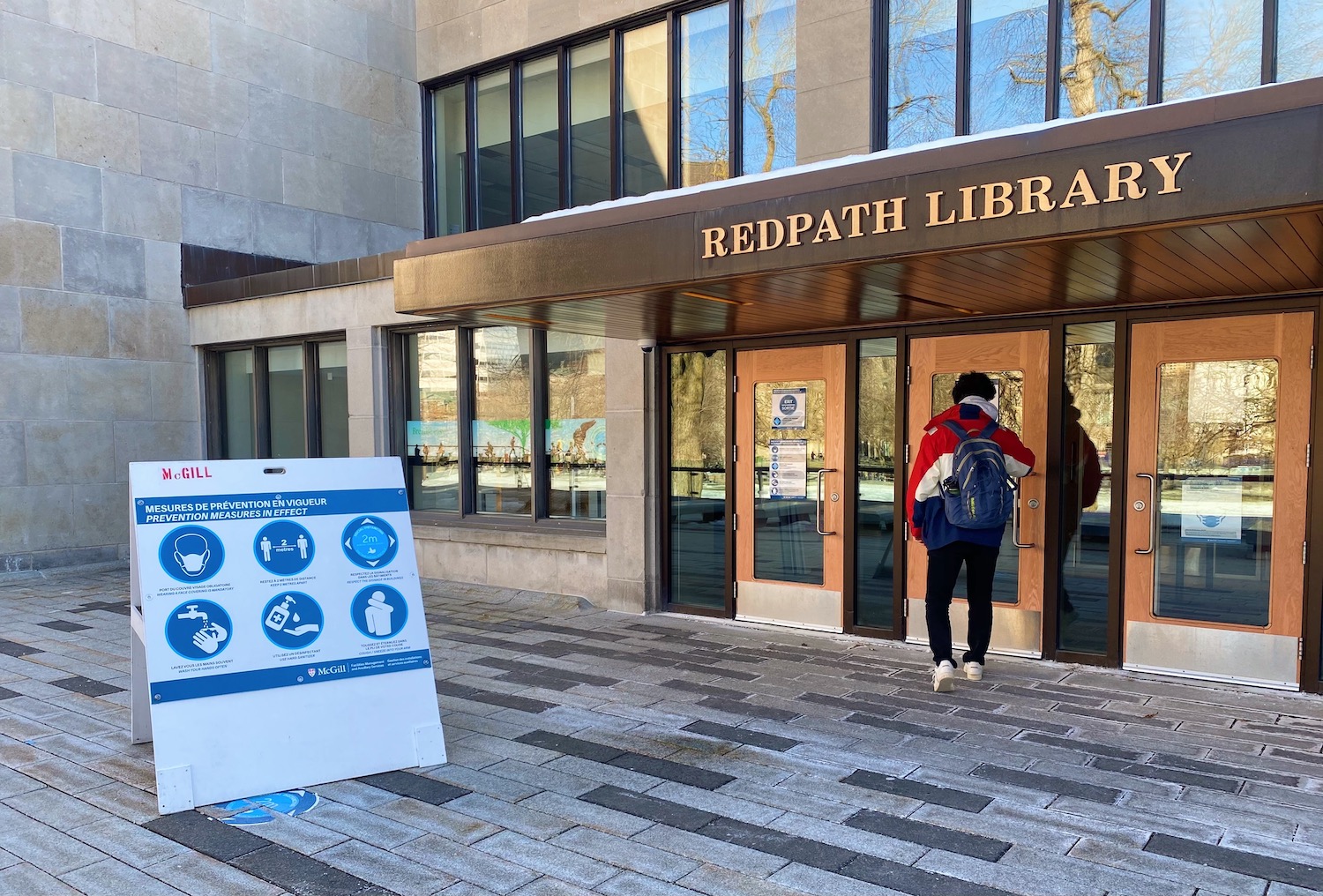On March 12, McGill hosted a town hall to discuss the university’s plan for in-person instruction during the Fall 2021 semester. The administration announced that while remote learning will be necessary for classes with more than 150 students, students are expected to return to Montreal to attend most smaller courses in person. McGill’s promises may be encouraging to students suffering from online education, but the premature decision to return to campus is driven by administrators’ concern for the university’s revenue rather than students’ finances or health.
Unfortunately, Canada’s slow vaccine rollout increases the risk of vaccine-resistant strains of COVID-19, meaning McGill cannot be sure that the public health situation will be safe enough to permit in-person instruction by September. Based on McGill’s announcement, many international or out-of-province students who have studied from home during the pandemic must now find housing in Montreal. But if McGill rolls back plans for in-person schooling, these students will be renting apartments they no longer need. This is particularly concerning for students whose families have endured economic hardship during the pandemic. The university must be more careful about imposing new expenses based on promises that may not be kept.
In general, remote learning has not been popular, and McGill has seen international enrollment decline over the past year. Since international students pay higher tuition than Canadian students, the university has a financial incentive to maintain their enrollment by reintroducing on-campus learning. Yet if it is not safe to reopen classes in September, McGill will be faced with the choice of either putting students at risk of contracting COVID-19 or reneging on their promise to reopen—which would be dishonest to students who only paid for courses under the impression that they would take place face-to-face.
In this effort to secure international tuition, McGill has also overlooked the effects of continued international travel restrictions. The university’s plan predicts that international travel will still not be recommended by public health authorities in the fall and that a “vaccine passport” may be required to enter the country. Since vaccines are not equally accessible around the world, there is no guarantee that all international students can be vaccinated before they arrive. Further, compelling thousands of students to travel to Montreal while authorities advise against it—especially if some have not been vaccinated—is extremely irresponsible. Unvaccinated students will be putting themselves at risk of infection, and if a vaccine passport requirement is implemented, they may not be able to attend classes. The administration’s plan for an in-person Fall semester ignores their own predictions about public health, proving that the hasty decision to reopen fully prioritizes money over student well-being.
Fortunately, McGill’s policies do not neglect international students entirely. The Quarantine Bursary Program will help those who cannot afford the cost of Canada’s mandatory hotel quarantine. However, this program alone is not enough to ensure safety and equity during the Fall term. Students who cannot come to campus should have the option to study remotely to ensure that school remains accessible. Professors can continue to offer remote instruction in many courses by streaming or recording lectures. Above all, McGill must not make students choose between their education and their health or financial security.
Some in-person learning will hopefully become possible as the public health situation improves, but it is unreasonable to expect all international students to travel to Canada if restrictions continue. The past year has proved that online learning is both possible and necessary under difficult circumstances, and until the future is less opaque, it must remain an option for students.








